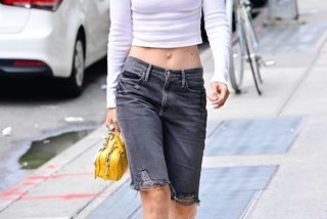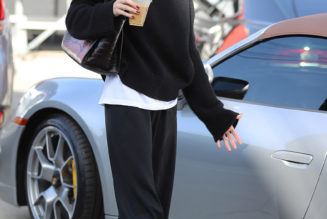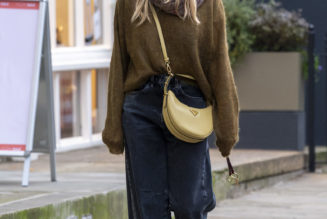
The LVMH results are “broadly OK”, “against the most difficult comparison basis of the year,” wrote Luca Solca, managing director of luxury goods at Bernstein, in a note on Tuesday. “We stick to our ‘soft landing’ scenario for 2024 and take this update as a sign that this remains the most likely shape of things to come.” He added that comps going into the second quarter would be an easier baseline.
Asked about the US market, LVMH’s Guiony said: “When you look at the fashion and leather goods division, we have been experiencing a slight improvement over the last three quarters. Our scenario would be a continued strength from the top end customers and a very gradual improvement from the aspirational customers,” Guiony said. He declined to comment on the presidential election in November. LVMH chairman and CEO Bernard Arnault said at the annual earnings conference in January that elections are typically good for business. “You have a variety of situations, some being positive, some being negative. So I wouldn’t dare make any comment on the outlook and what influence it could have on our business,” Guiony said.
As for the watches category, the industry is anticipating a downturn. The Watches and Wonders fair in Geneva wrapped up on Monday, as exports to China are in a slump. Rolex CEO Jean-Frédéric Dufour, chief executive, told Swiss newspaper NZZ that “2024 will be a challenging year”. “As far as watches are concerned, I confirm that we are not particularly optimistic. We don’t expect catastrophe, but the messages that we got from the clients at Watches and Wonders were the same as the one that our competitors got. We don’t expect a fabulous year, not necessarily a bad one either, but not a great year,” said Guiony.
Tiffany and Bulgari, LVMH’s two most prominent jewellery players, are experiencing a different set of circumstances, said Guiony. “The breakdown of Bulgari and Tiffany by geographies is not at all the same. There is almost half of the business for Tiffany being done in the US with a high exposure to the aspirational customer, so obviously this has been taking its toll in the last four or five quarters. Bulgari is much more exposed to the Asian customers and the Chinese one in particular, which remained positive in the first quarter of the year.”
Next, attention will turn to the Paris Olympics, for which LVMH is a premium partner. Will the event boost sales? Don’t expect a windfall. “As we’ve seen in other capitals in which we had Olympics in the past, like Beijing or London, it’s not a major boost to the business – people probably have other things in mind – but it’s not a catastrophe either. It’s usually quite neutral, although it makes our life a little bit more complicated when it comes to supplying products into our stores.”
Comments, questions or feedback? Email us at feedback@voguebusiness.com.
More from this author:
The five watch trends to know in 2024
Watchmakers are shaking up strategies to meet a new generation of aficionados
Kering taps Stefano Cantino as Gucci deputy CEO: Why it matters









